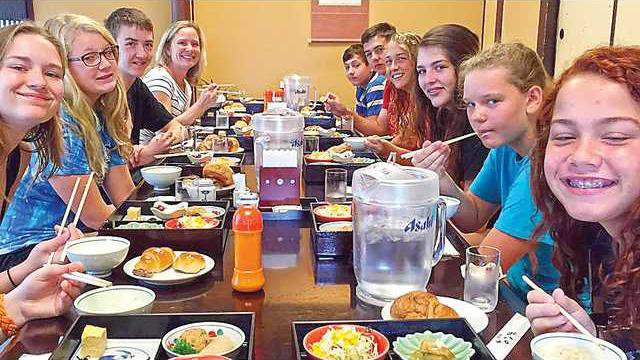The menu options were certainly foreign to Warren County students during an 11-day trip to Japan. Instead of American mainstays like pizza and cheeseburgers, local students experienced Japanese staples such as sushi, seaweed, and squid.“It wasn’t Pop-Tarts or cereal for breakfast,” said Leigh Ann Stewart, one of two adult chaperones for the Sister Cities exchange program between Warren County and Japan. “Probably the most exotic meal we had was at a Japanese restaurant where we had meat on a stick.
Asian adventure
Local students soak up Japan





